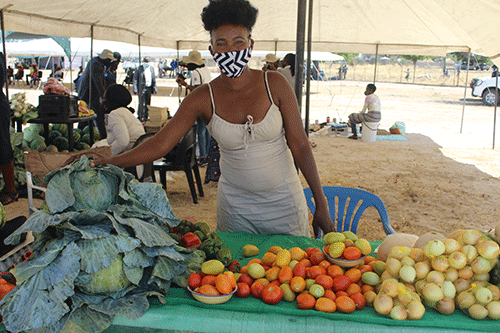Africa’s agri-food systems must be transformed to make healthy diets more affordable for Africans. That is the central message of a report by the Food and Agriculture Organisation of the United Nations (FAO), the UN Economic Commission for Africa (UNECA) and the African Union Commission (AUC).
According to the latest report, Africans face some of the highest food costs when compared to other regions of a similar level of development.
Nutritious foods, such as fruits, vegetables and animal proteins, are relatively expensive when compared to staples such as cereals and starchy roots, and, the report argues, some of the reasons for this are systemic.
Evidence presented in the report shows that nearly three-quarters of the African population cannot afford a healthy diet of fruits, vegetable and animal proteins, and more than half cannot afford a nutrient-adequate diet, which provides a mix of carbohydrates, protein, fats, and essential vitamins and minerals to maintain basic health. Even an energy-sufficient diet, which supplies a bare minimum of energy and little else, is out of reach for over 10% of the continent’s population.
“The picture that emerges is that the agri-food systems in Africa do not provide food at a cost that makes healthy diets affordable to the majority of the population, and this is reflected in the high disease burden associated with maternal and child malnutrition, high body-mass, micronutrient deficiencies and dietary risk factors,” FAO assistant director general and regional representative for Africa Abebe Haile-Gabriel said.
“A common vision, strong political leadership and effective cross-sectoral collaboration, including the private sector, are essential to agree on trade-offs and identify and implement sustainable solutions to transform agri-food systems for healthy, affordable diets,” he said.
‘Unacceptably slow’ progress on ending malnutrition
Overall progress in meeting global nutrition targets remains unacceptably slow in Africa, according to the report. Sub-Saharan Africa is the only region in the world where the number of stunted children continues to rise.
Although the prevalence of stunting is declining, it is falling only very slowly and despite progress, nearly a third of the children in sub-Saharan Africa are stunted.
Only three countries, Eswatini, Kenya and Sao Tome and Principe, are on course to meet four of the five World Health Assembly nutrition targets. Three other countries, Ghana, Lesotho and Rwanda, are on track to meet three of the targets. The report also states that current food consumption patterns in Africa impose high health and environmental costs, which are not reflected in food prices. Including these costs would add US$0.35 to each dollar spent on food in sub-Saharan Africa.
Rebalancing diets to include more plant-based foods would reduce the cost of diets and lower health and environmental costs. Compared to current average diets, diets that are more plant-based would reduce the full cost of diets, including health and environmental costs, by 11–21% in low-income countries.
-FAO/AUC/UNECA


